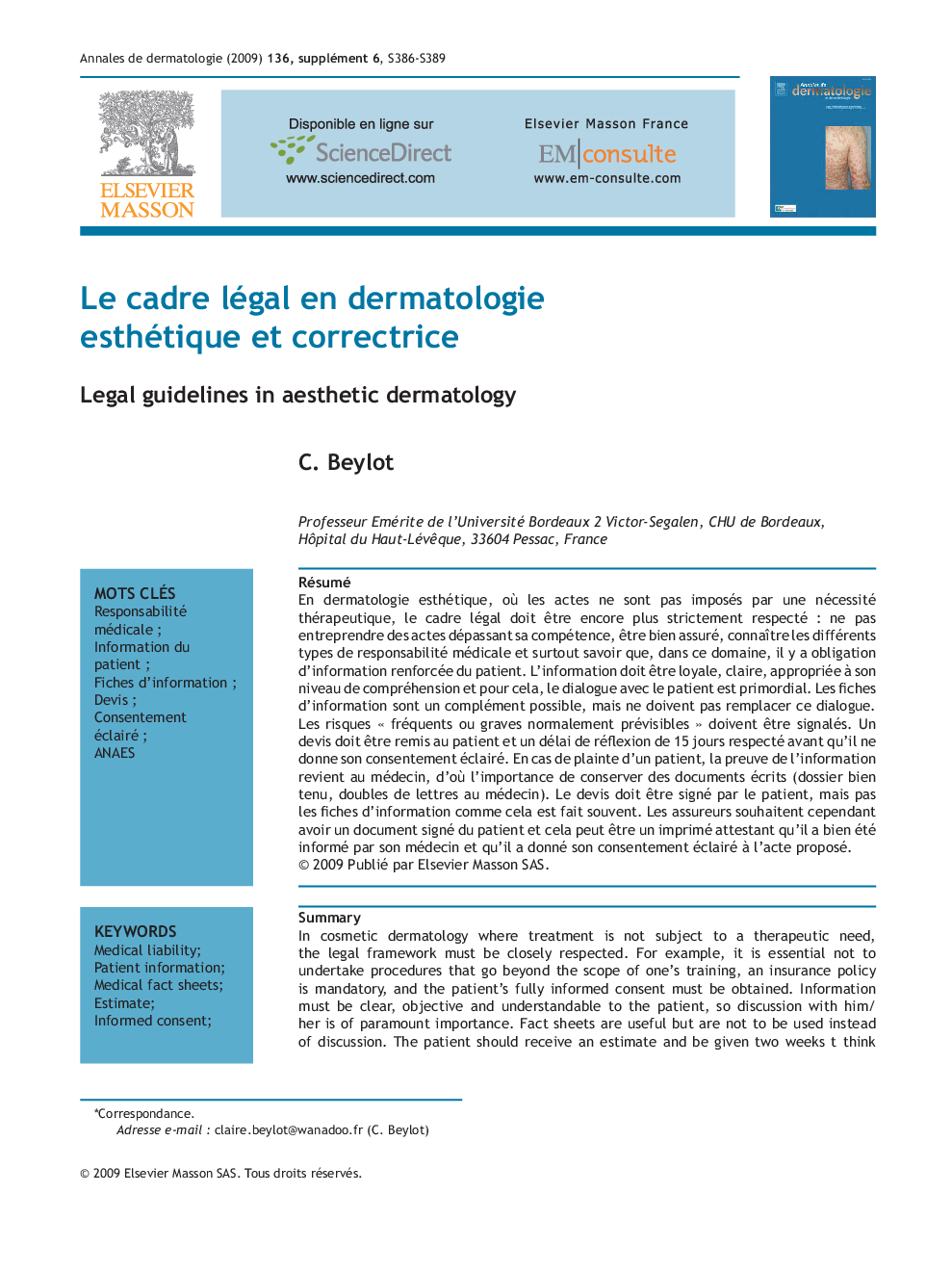| Article ID | Journal | Published Year | Pages | File Type |
|---|---|---|---|---|
| 3189087 | Annales de Dermatologie et de Vénéréologie | 2009 | 4 Pages |
Abstract
In cosmetic dermatology where treatment is not subject to a therapeutic need, the legal framework must be closely respected. For example, it is essential not to undertake procedures that go beyond the scope of one's training, an insurance policy is mandatory, and the patient's fully informed consent must be obtained. Information must be clear, objective and understandable to the patient, so discussion with him/her is of paramount importance. Fact sheets are useful but are not to be used instead of discussion. The patient should receive an estimate and be given two weeks t think things over before giving his/her informed consent. In the event of the patient filing a complaint, it is up to the clinician to prove that the patient received adequate information, hence the importance of keeping all documentary evidence such as an updated medical file and copies of all correspondence. The estimate must be signed by the patient but not the fact sheets, contrary to what has come to be common practice in some institutions. Insurance companies need a document signed by the patient. This may be a pre-printed form stating that the patient has been fully informed by the clinician and has given his//her informed consent to the planned procedure.
Keywords
Related Topics
Health Sciences
Medicine and Dentistry
Dermatology
Authors
C. Beylot,
